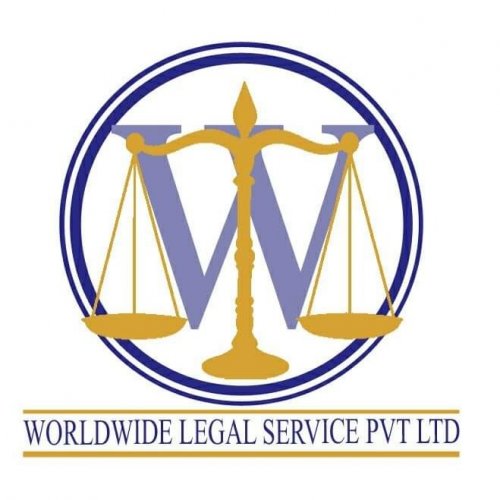Best Appeal Lawyers in Nepal
Share your needs with us, get contacted by law firms.
Free. Takes 2 min.
Or refine your search by selecting a city:
List of the best lawyers in Nepal
About Appeal Law in Nepal
In Nepal, the legal framework surrounding appeals is designed to provide individuals a chance to seek justice if they believe a lower court's judgment was erroneous. The appeal process allows for the review of facts, evidence, and legal arguments to ensure fair outcomes in judicial decisions. This process is an integral part of the Nepali judiciary, which follows a hierarchical court system comprising District Courts, High Courts, and the Supreme Court.
Why You May Need a Lawyer
There are several scenarios where legal assistance is crucial in an appeal case:
- If you receive an unfavorable verdict in a lower court and believe there was a legal or procedural error.
- If you need help understanding the complexities of filing an appeal, including the legal grounds necessary for an appeal to be considered.
- If you require expertise in presenting and arguing your case before an appellate court to ensure the best possible outcome.
- If there are new evidence or legal precedents that have come to light since the original judgment.
Local Laws Overview
Nepal's appeal process is guided by specific legal provisions outlined in the constitution and various acts. Key aspects include:
- The Constitution of Nepal lays the foundation for the judicial hierarchy and appellate jurisdiction.
- District Court decisions can generally be appealed to the High Court, and further appeals may be taken to the Supreme Court.
- The Civil and Criminal Procedure Codes specify time limits and procedural requirements for filing appeals.
- Legal grounds such as procedural errors, misinterpretation of law, and consideration of new evidence are essential for a valid appeal to be heard.
Frequently Asked Questions
1. What is the time limit to file an appeal in Nepal?
The time limit to file an appeal varies, but generally, it is 35 days from the date of the lower court's decision. Specific cases may have different timelines.
2. Which courts handle appeal cases in Nepal?
Appeal cases are typically handled by High Courts and, in certain cases, the Supreme Court of Nepal.
3. What are the grounds for filing an appeal?
Grounds for appeal include legal errors in the original decision, procedural issues, and the emergence of new evidence not previously available.
4. Can every decision be appealed?
Not every decision can be appealed; some judgments are final and binding unless there is a specified provision allowing for further appeal.
5. What documents are needed to file an appeal?
Required documents generally include a copy of the lower court's judgment, grounds of appeal, and any new evidence intended to be presented.
6. How can a lawyer assist in an appeal case?
A lawyer can help by assessing the case's merits, advising on legal strategy, drafting the necessary documents, and representing the client in court proceedings.
7. Is legal aid available for appeals?
Yes, legal aid is available for those who cannot afford a lawyer, provided by governmental and non-governmental organizations.
8. What is the role of the Supreme Court in appeals?
The Supreme Court is the highest appellate court, which can hear cases of significant importance or constitutional matters, setting legal precedents.
9. What happens if an appeal is not successful?
If an appeal is not successful, the decision of the lower court stands. Further appeal may be possible under specific circumstances.
10. Can an appeal decision be enforced immediately?
Once the appellate court's decision is made, it becomes enforceable under law unless further appeal or stay orders are obtained.
Additional Resources
For further assistance, consider reaching out to these resources:
- The Nepal Bar Association provides information and resources for legal assistance.
- Local legal aid organizations can offer free or low-cost legal services to those in need.
- The Supreme Court of Nepal's official website provides insights into court procedures and updates.
Next Steps
If you need legal assistance in filing an appeal, it is advisable to:
- Consult with a lawyer who specializes in appellate law to evaluate the merits of your case.
- Gather all necessary documentation and evidence that supports your appeal.
- Ensure compliance with deadlines and procedural requirements to avoid dismissal of your appeal.
- Consider contacting legal aid services if financial constraints limit your access to professional legal advice.
By following these steps, you can navigate the appeal process more effectively, with the guidance of experienced legal professionals ensuring your rights are protected.
Lawzana helps you find the best lawyers and law firms in Nepal through a curated and pre-screened list of qualified legal professionals. Our platform offers rankings and detailed profiles of attorneys and law firms, allowing you to compare based on practice areas, including Appeal, experience, and client feedback.
Each profile includes a description of the firm's areas of practice, client reviews, team members and partners, year of establishment, spoken languages, office locations, contact information, social media presence, and any published articles or resources. Most firms on our platform speak English and are experienced in both local and international legal matters.
Get a quote from top-rated law firms in Nepal — quickly, securely, and without unnecessary hassle.
Disclaimer:
The information provided on this page is for general informational purposes only and does not constitute legal advice. While we strive to ensure the accuracy and relevance of the content, legal information may change over time, and interpretations of the law can vary. You should always consult with a qualified legal professional for advice specific to your situation.
We disclaim all liability for actions taken or not taken based on the content of this page. If you believe any information is incorrect or outdated, please contact us, and we will review and update it where appropriate.
Browse appeal law firms by city in Nepal
Refine your search by selecting a city.

















